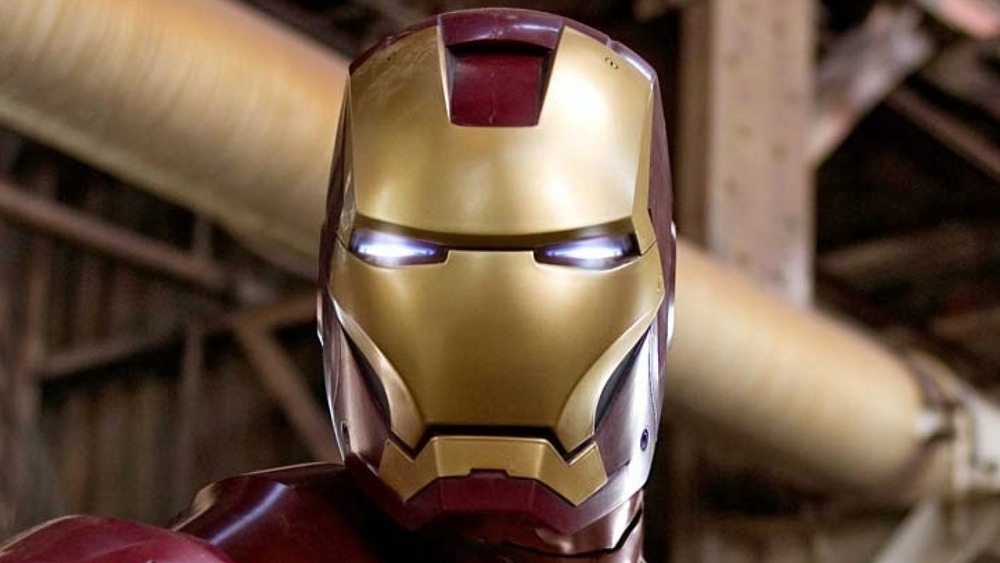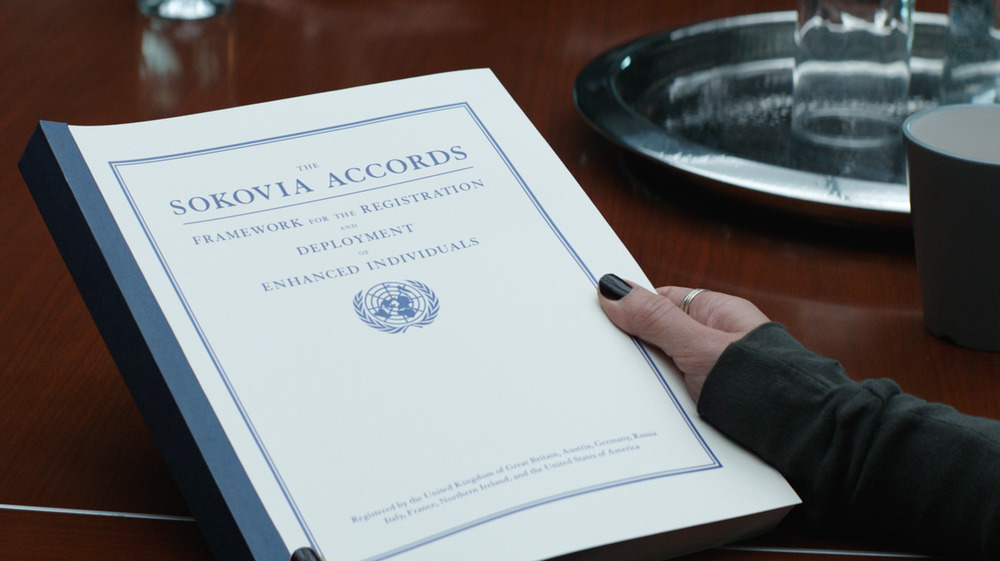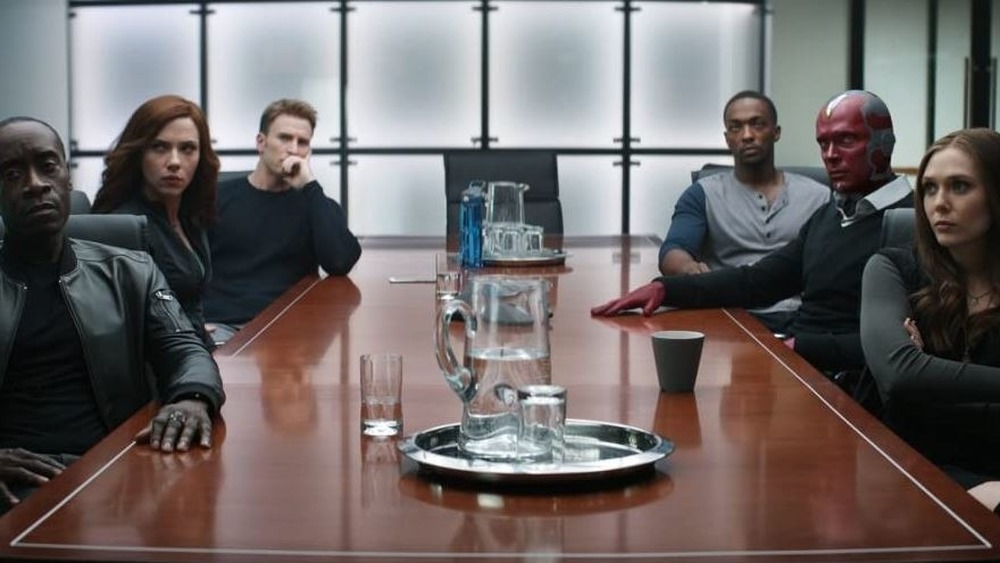What Even Hardcore MCU Fans Don't Know About The Sokovia Accords
Every fan of the Marvel Cinematic Universe has probably at least heard of the Sokovia Accords. Created after the events of Avengers: Age of Ultron and the doomed Lagos mission in Captain America: Civil War, the Accords aim to regulate people with superpowers and have them operate under the guidance of a United Nations panel. As such, they effectively strip the Avengers of their autonomy, which in turn causes the titular confrontation in Civil War. Most recently, Disney+'s WandaVision references the Lagos incident, so chances are the MCU movies, too, are far from done with the assorted troubles around the Accords.
But how exactly do the Sokovia Accords work in practice? If some real-life billionaire started flying around in a suit of armor and fighting crime with a defrosted WWII hero, could the UN hit them with a real-world version? Looper talked with national security attorney Mark Zaid, who's in a unique position to open up the mysteries of the Accords. After all, apart from his day job, he's an avid comic book collector and dealer through his website, Esquire Comics. He has also served as the guest curator of the Yale Law School exhibition, Superheroes in Court! Lawyers, Law and Comic Books (per The New York Times).
With Zaid's expertise, here are some things even hardcore MCU fans might not know about the Sokovia Accords.
The Sokovia Accords would be extremely illegal in the real world
When asked whether the Sokovia Accords would be legal if someone tried to implement them today, Zaid's answer is extremely clear. "For a number of reasons, no, they would not be," he says, because the accords ignore a whole lot of legal protections that are in place for a reason. "Certainly one of the primary concerns anyone should have of the Sokovia Accords is the reality that all constitutional due process is thrown out of the window," Zaid explains. "The Accords [allow] imprisonment without rule of law. Definitely not a positive step for a world that wants to follow democratic principles. To say nothing of the violations of privacy in requiring secret identities to be revealed, or illegal surveillance without any warrants."
Zaid notes that the Accords are clearly borne out of fear, and would only work in the extremely theoretical situation that the superheroes would give up all control. "If the 'enhanced individuals' ceded compliance in full, and basically their free will, then perhaps it would accomplish its intended purposes. But the likelihood of that was never realistic."
In the MCU, the Accords are a United Nations thing — and since 117 nations were happy to ratify the documents, they're treated as fully legal and good to go. However, in the real world, it doesn't matter how many countries sign a bunch of papers, because in the U.S. alone, the Accords would still have to get the Senate's overwhelming support. "Of course, simply because [117] nations signed the Accords also does not transform them into law," Zaid says. "That is not how it works in the United States, at least, which requires international treaties to go through 2/3 Senate ratification."
The Sokovia Accords might actually hurt the world, rather than protect it
When asked whether the Accords could be improved or amended in any way to make them more viable, Zaid immediately points out that the superheroes themselves should be part of the discussion — after all, they're the ones the Accords affect. "If 'enhanced individuals' are ever going to be subject to the laws of civilization, beyond those that would apply to them when in their alter-ego disguises (for those that have), then one would hope at the very least that they would be invited in to discuss how that would look first before having it forced upon them as a final document by the nations of the world."
Even if the United Nations managed to talk things over with the superpowered community and successfully implement a version of the Sokovia Accords, Zaid thinks that it wouldn't do much good — on the contrary, it might actively cause destruction. "In my view, the Accords create far more harm than good," he says. "Any positive impact is, and would be, only a temporary result that would — and did — quickly unravel."
In fact, Zaid suspects that the Accords would ultimately fail pretty catastrophically, because individual countries and shady superpowered operators would no-doubt take advantage of the situation. "Of course, like so many international treaties that have come before this one, as soon as you have a rogue nation undertake some sinister secretive activities — or no doubt some rogue 'enhanced individuals' who you absolutely know will show up on the scene one day — [then] the ability of such a set of rules to work goes right out the window. Instead of the Accords protecting the world, it may very well lead to its demise."


